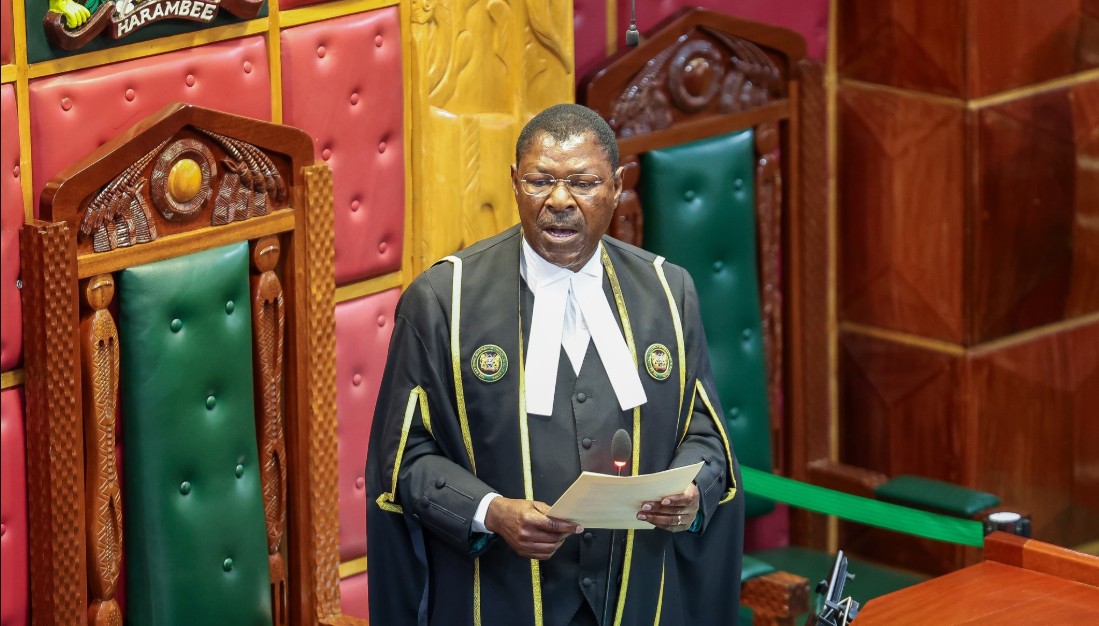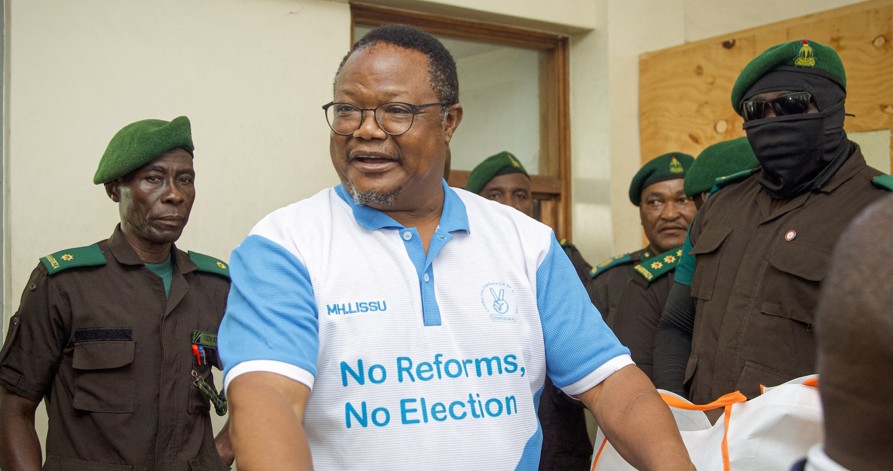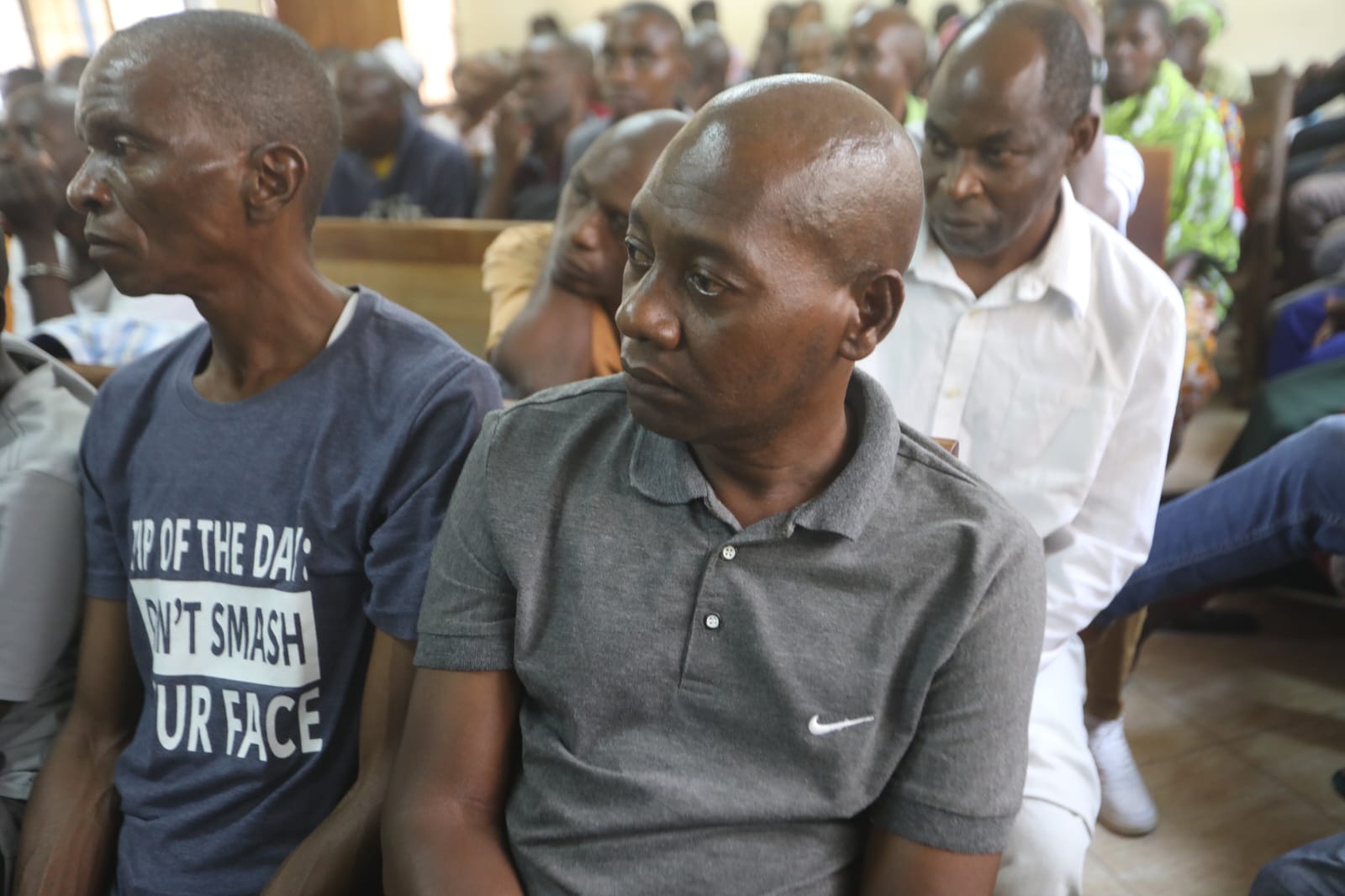Legal experts caution Wetang’ula over ruling declaring Kenya Kwanza majority party

In a letter, lawyer Kibe Mungai said the court had already determined that the question of the majority party was settled by Kenyan voters in the August 9, 2024 general elections.
Legal and constitutional experts have raised concern over the decision by National Assembly Speaker Moses Wetang’ula to declare Kenya Kwanza as the majority side despite a High Court ruling that stripped the ruling party of its status.
Wetang’ula's move on Wednesday irked Azimio lawmakers whose protest and walkout could plunge the House into a constitutional crisis and set a bad precedent concerning adherence to law and order, the experts argue.
More To Read
- Supreme Court to begin year-end recess on December 21
- JSC shortlists 100 candidates for High Court judge positions
- Parliament warns Kenyans against fake Bills, false Cabinet vetting letter circulating online
- High Court suspends enforcement of disputed sections of cybercrime law pending petition hearing
- Committee uncovers neglect, poor management in MPs’ constituency offices
- Teen who breached Parliament, claiming to be President Ruto’s son, freed
In a ruling issued in the National Assembly on Wednesday, Speaker Wetang’ula explained that the court did not give the direction on which side is the majority or minority.
He noted that the status quo remains unchanged as Kenya Kwanza comprises 165 members as opposed to Azimio's 154.
"Arising from the foregoing, the Kenya Kwanza is the majority and the Azimio is the minority. The Leadership of the House remains unchanged," the speaker stated.
However, legal experts who spoke to The Eastleigh Voice disagreed with Wetang’ula’s ruling, urging him to respect court decisions.
Legal and constitutional concerns
Advocate and law lecturer Evans Ogada said Wetang’ula’s ruling, despite a prior court decision, raises significant legal and constitutional concerns. Among the legal implications he listed include a violation of the doctrine of separation of powers and the potential for a constitutional crisis.
"The Judiciary's interpretation of the law is binding, and the Speaker, as part of the legislature, is required to respect court decisions. If the Speaker's ruling contradicts a judicial decision, it may amount to a violation of the separation of powers principle under Article 1(3) of the Constitution of Kenya, 2010, which establishes the three arms of government as separate but interdependent," said Ogada.
He said that ignoring a court ruling creates a precedent where legislative and executive actions may disregard judicial authority, leading to constitutional instability. If unchecked, this could erode the rule of law and weaken judicial independence.
Ogada averred that Wetang’ula’s ruling could also attract grounds for judicial review, impeachment or disciplinary action against the Speaker, casting doubt on the legitimacy of parliamentary decisions and acting as a potential contempt of court proceedings.
Constitutional expert Bobby Mkangi, who served as a commissioner in the nine-member Committee of Experts for Constitutional Review (CoE) that delivered the 2010 Constitution, noted that courts did not direct Wetang’ula to correct his mistake by doing a fresh roll call of members and the formations they belong to.
"Unless and until successfully appealed against, the decision of the court should be respected and implemented. It is not the Speaker but the Constitution that determines the pecking order in the National Assembly," advised Mkangi.
In his view, if the National Assembly continues to operate in contravention of the directions of the courts, it will be wasting taxpayers' money, because its actions and resolutions are null and void.
In a letter, lawyer Kibe Mungai said the court had already determined that the question of the majority party was settled by Kenyan voters in the August 9, 2024 general elections.
No legal authority
Mungai argues that Wetang’ula’s continued assertions go against the court's decision and raise concerns about constitutional compliance. He points out that as a litigant in the case, Wetang’ula has no legal authority to determine or enforce the ruling in favour of his political coalition.
In his letter, Mungai calls for Wetang’ula to resign from his leadership role in Ford-Kenya and Kenya Kwanza by February 14, 2025, and to ensure the immediate implementation of the court ruling which recognises Azimio La Umoja as the majority party. He states that failure to comply could lead to legal action, including possible contempt of court proceedings.
Azimio MPs led by Suba South MP Millie Odhiambo disagreed with Wetang’ula’s decision and noted that they would take further action against his ruling.
"As Azimio, we very respectfully disagree with your communication... As Azimio we are going to take further action," Odhiambo stated.
Speaker Wetang’ula’s ruling comes amid the debate about which party occupies the majority side following the latest High Court ruling to strip Kenya Kwanza of its majority status.
This is after Justices John Chigiti, Lawrence Mugambi, and Jairus Ngaah noted that Speaker Wetang’ula contradicted the Registrar of Political Parties whose documents showed that Azimio had the majority status in 2022 before 14 MPs jumped ship to the ruling party.
Following the court ruling, Azimio MPs occupied the majority side during the resumption of parliamentary sittings on Tuesday and called upon Speaker Wetang’ula to honour the court ruling.
"The court decided that the Azimio side is the majority coalition. As a parliament, we need to obey court rulings even if we do not agree with them," she said.
Top Stories Today

















































